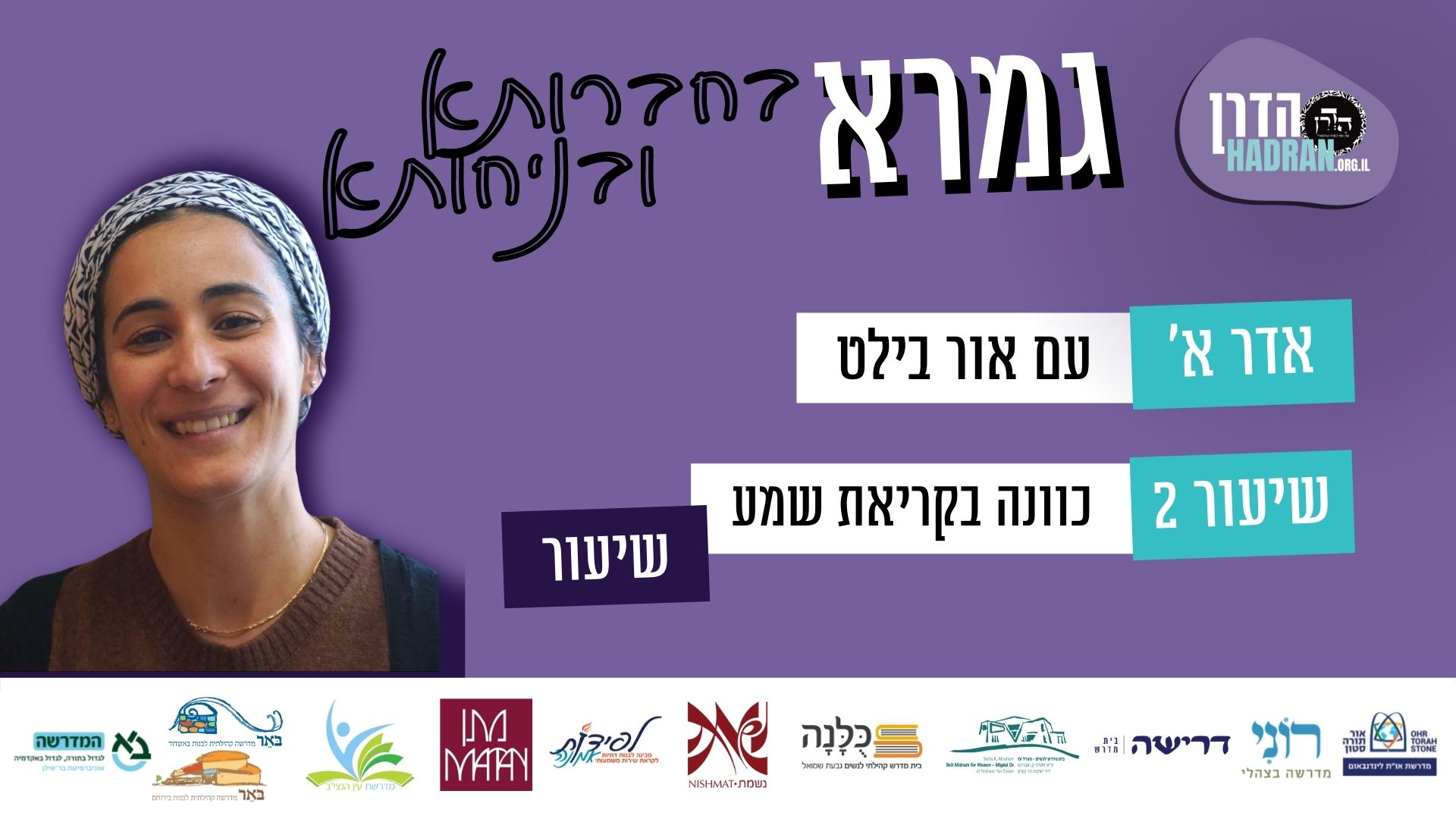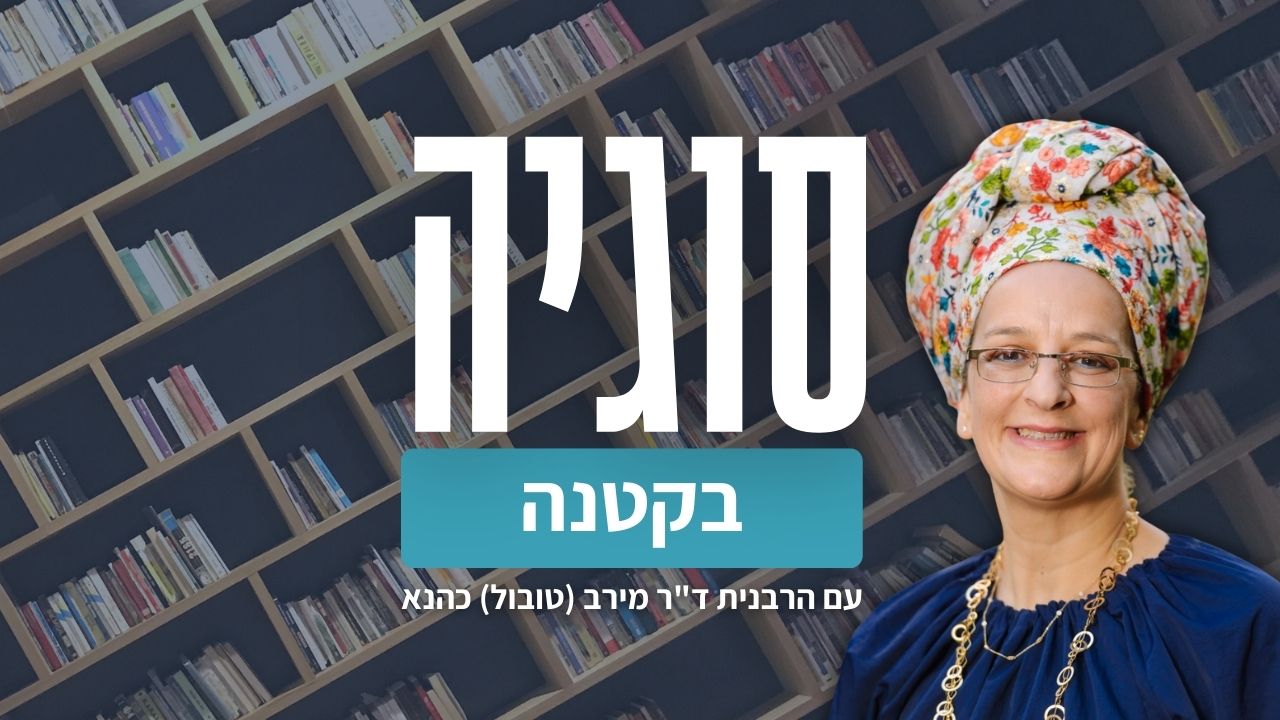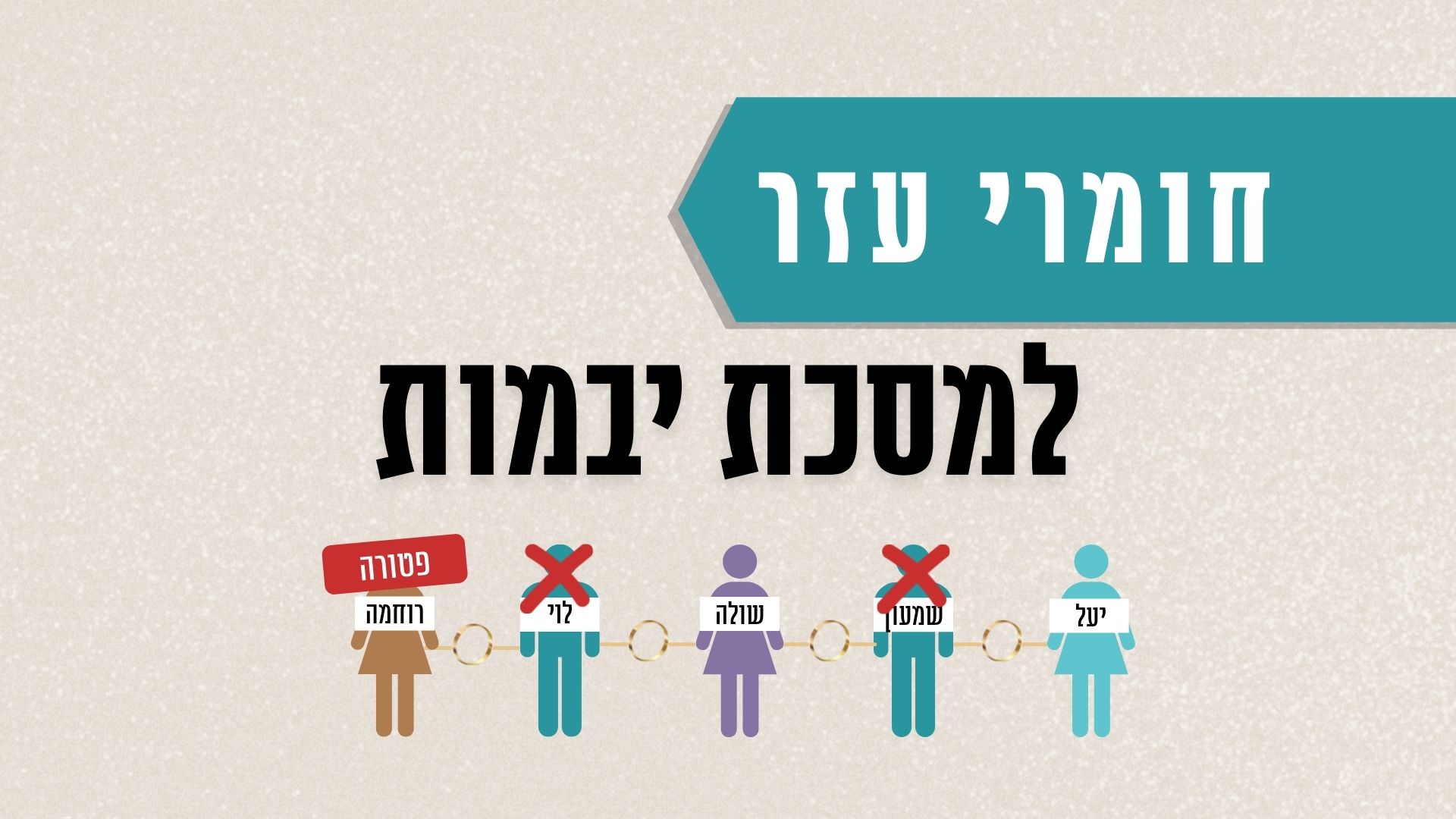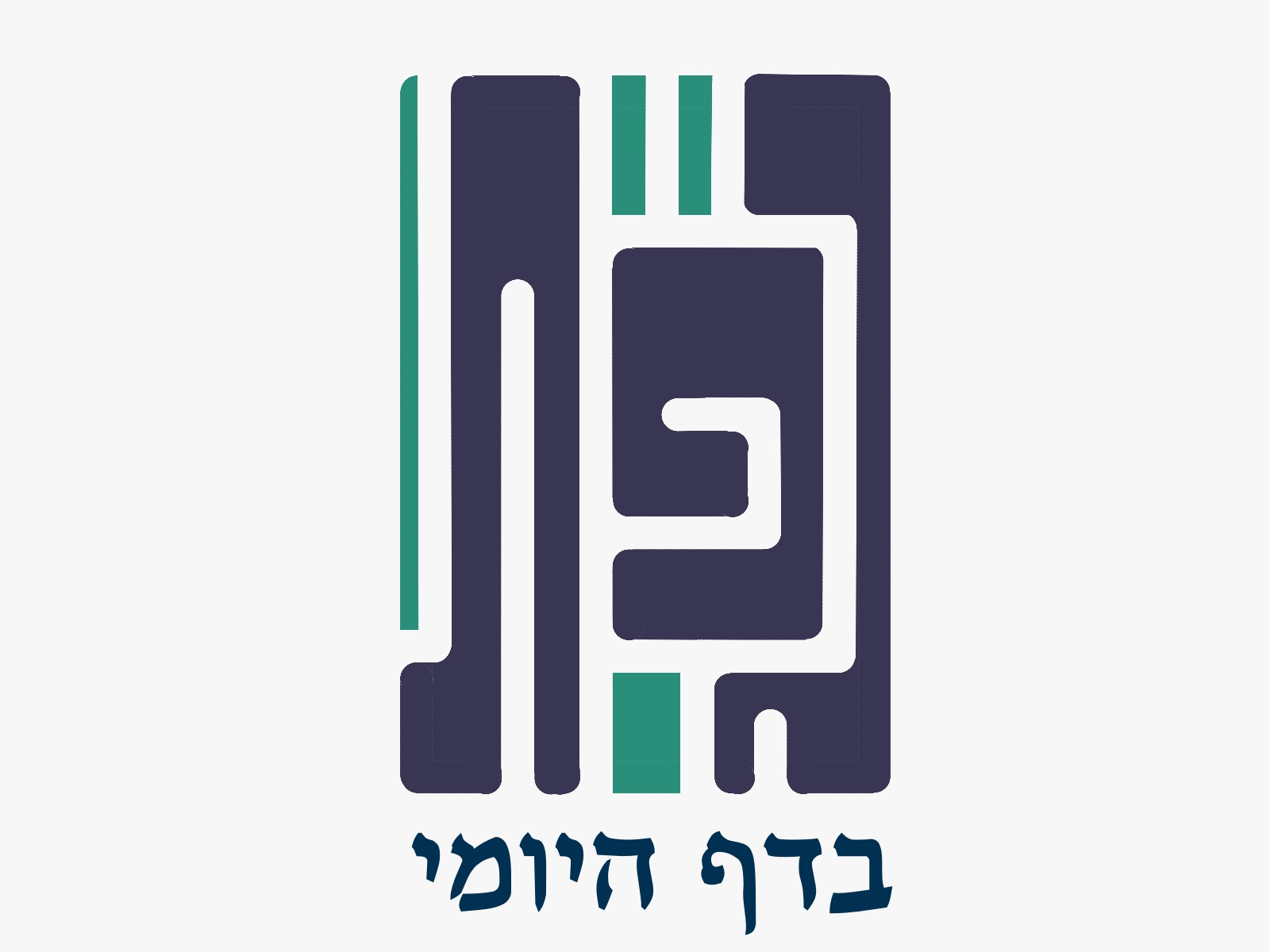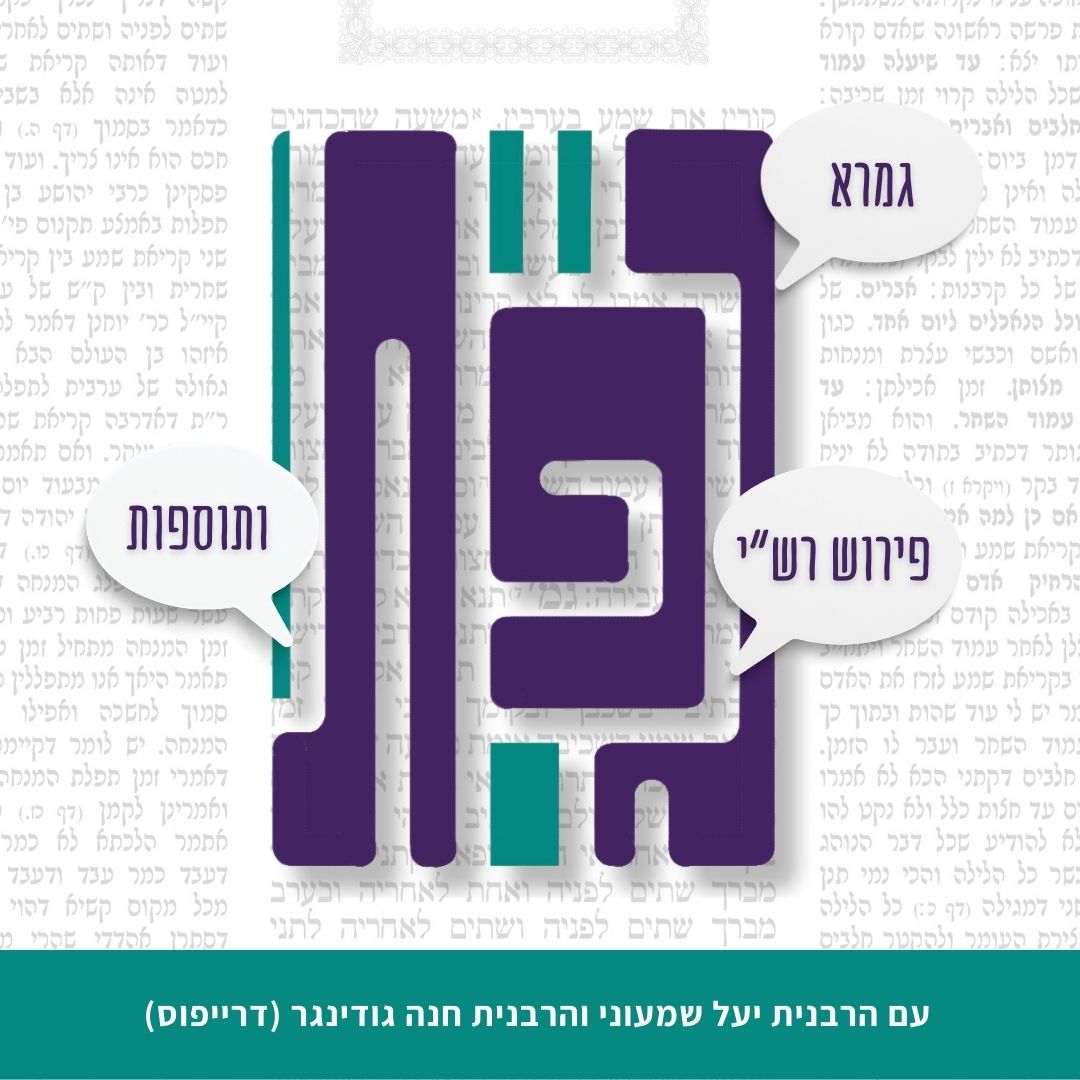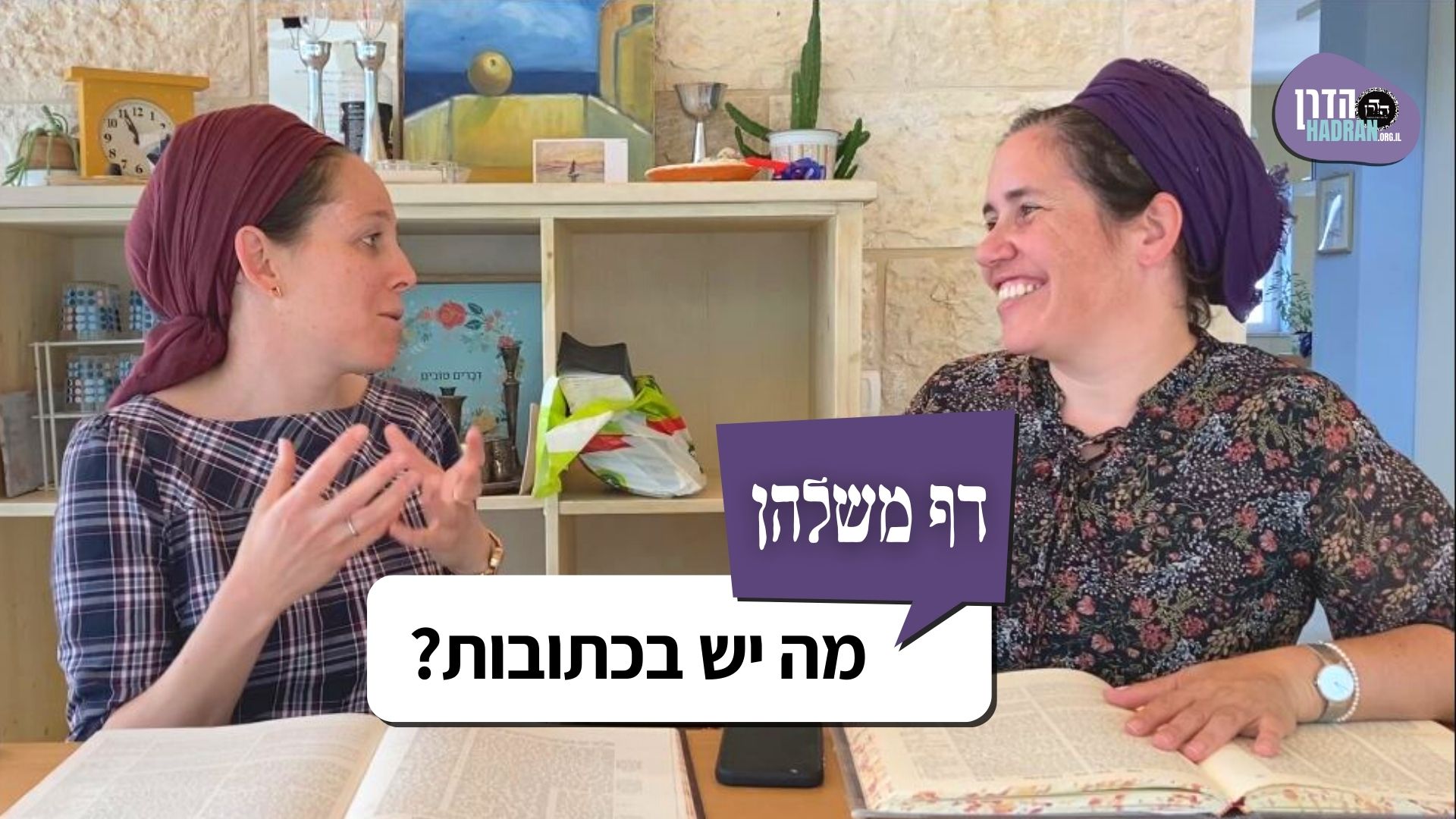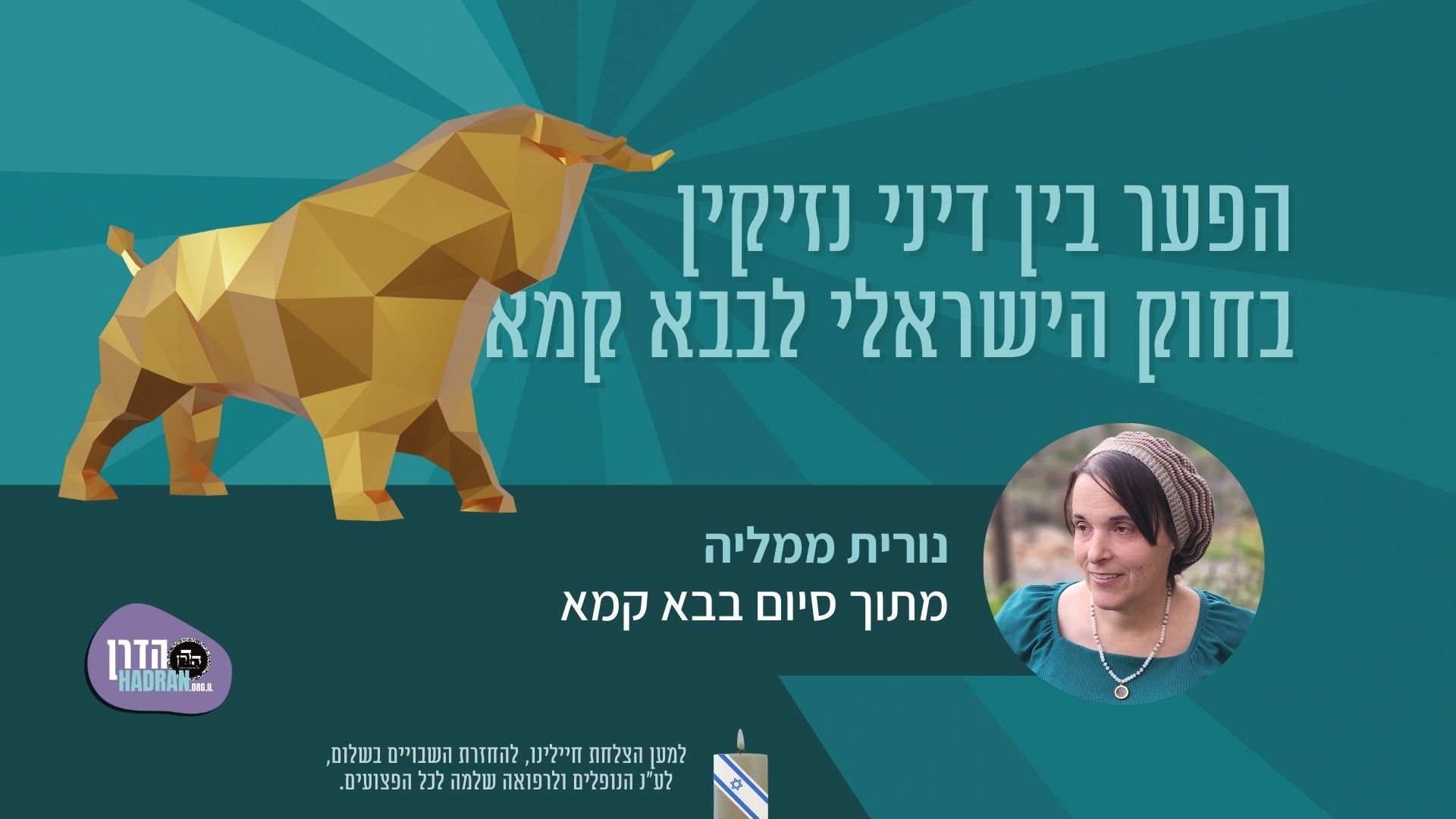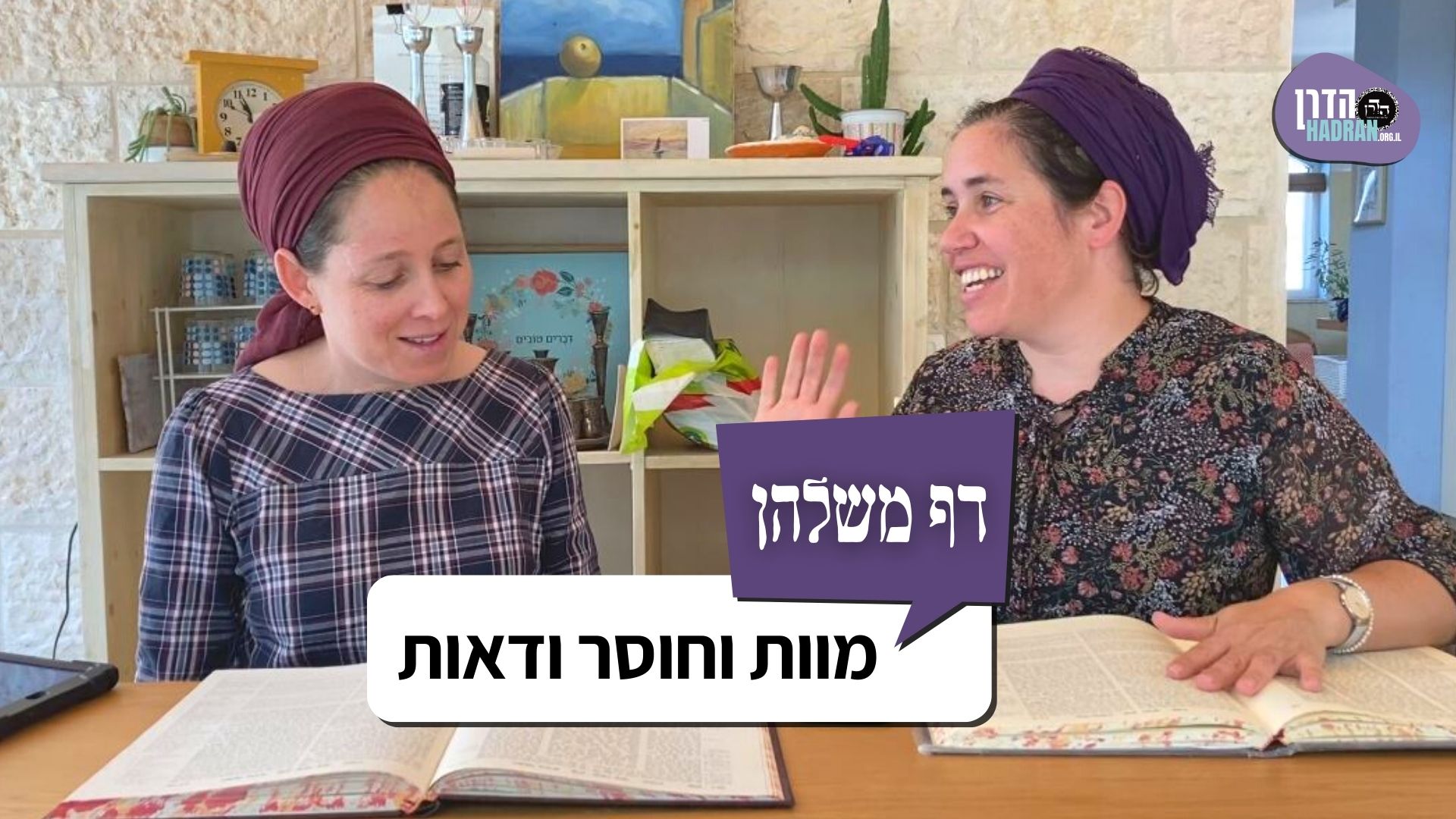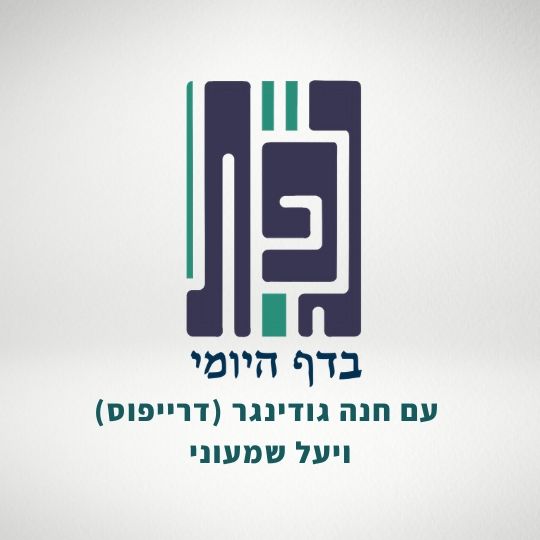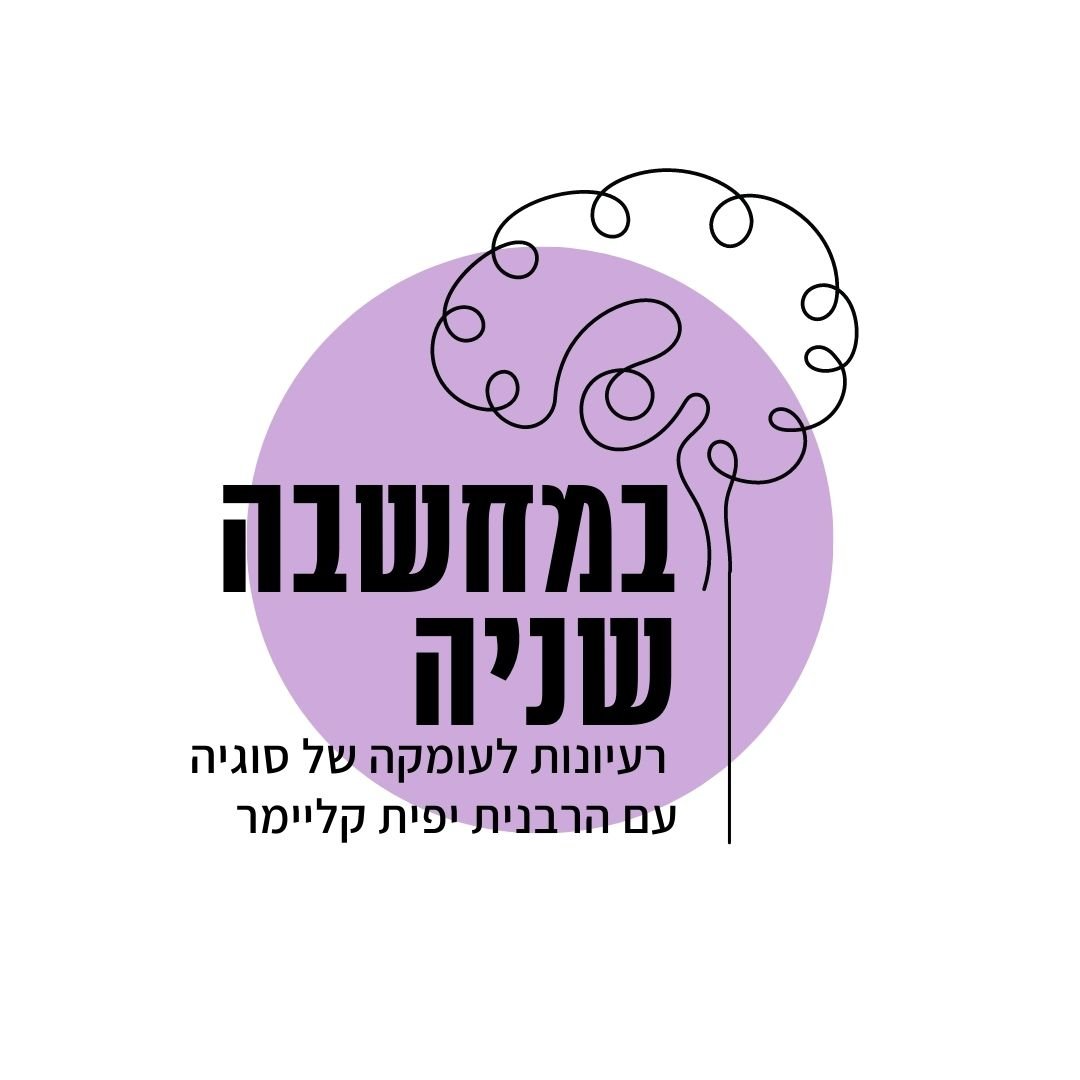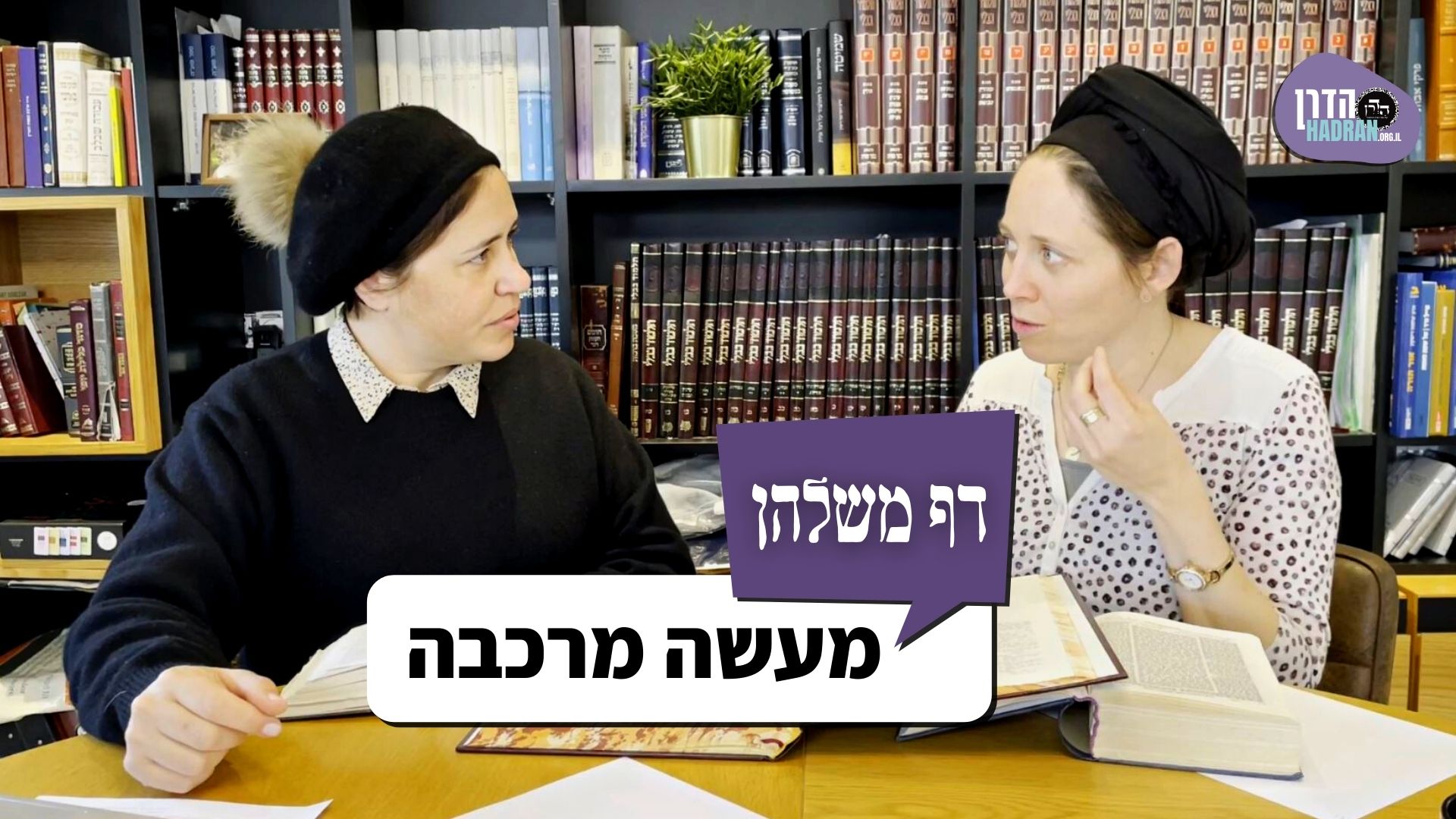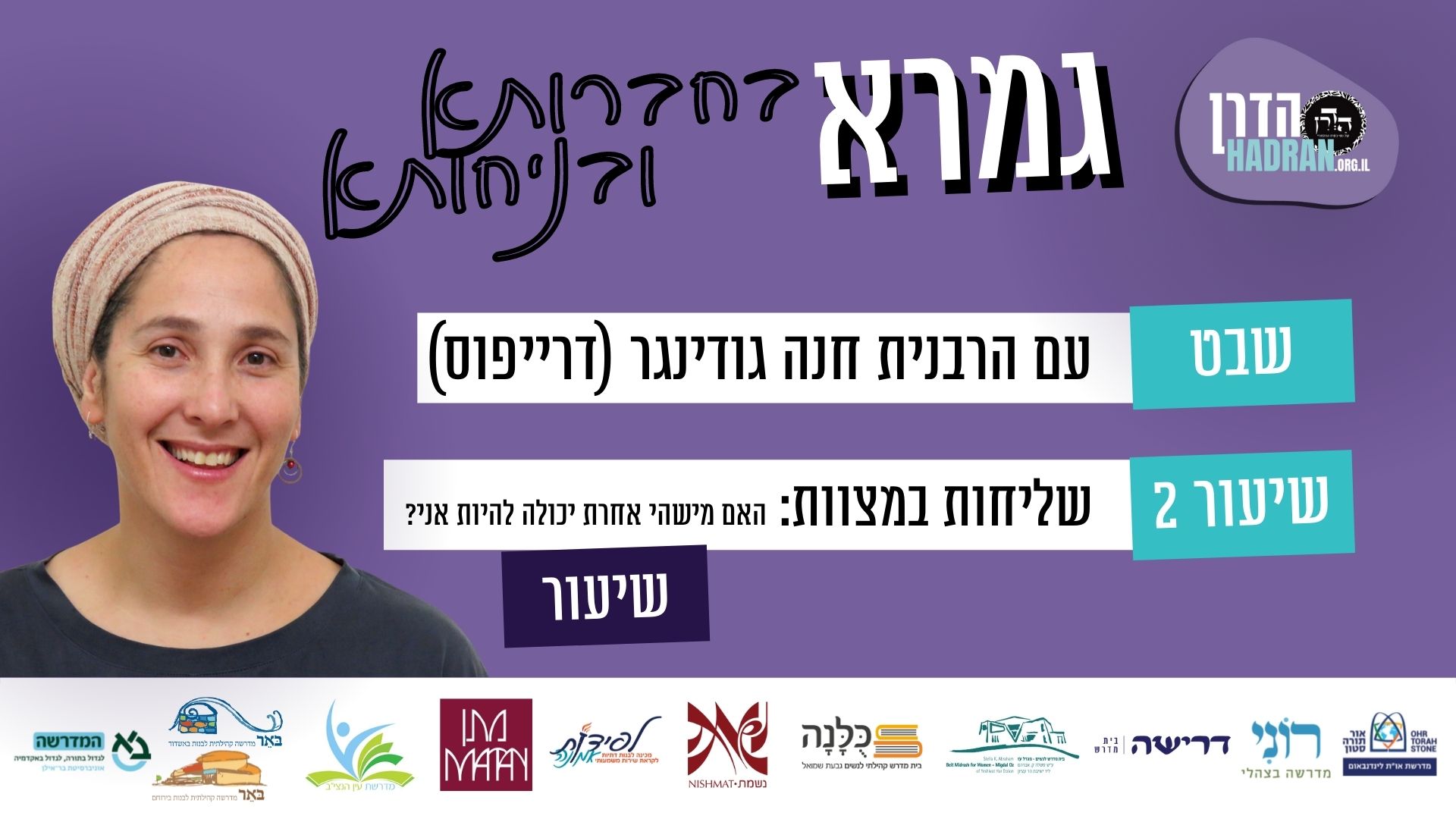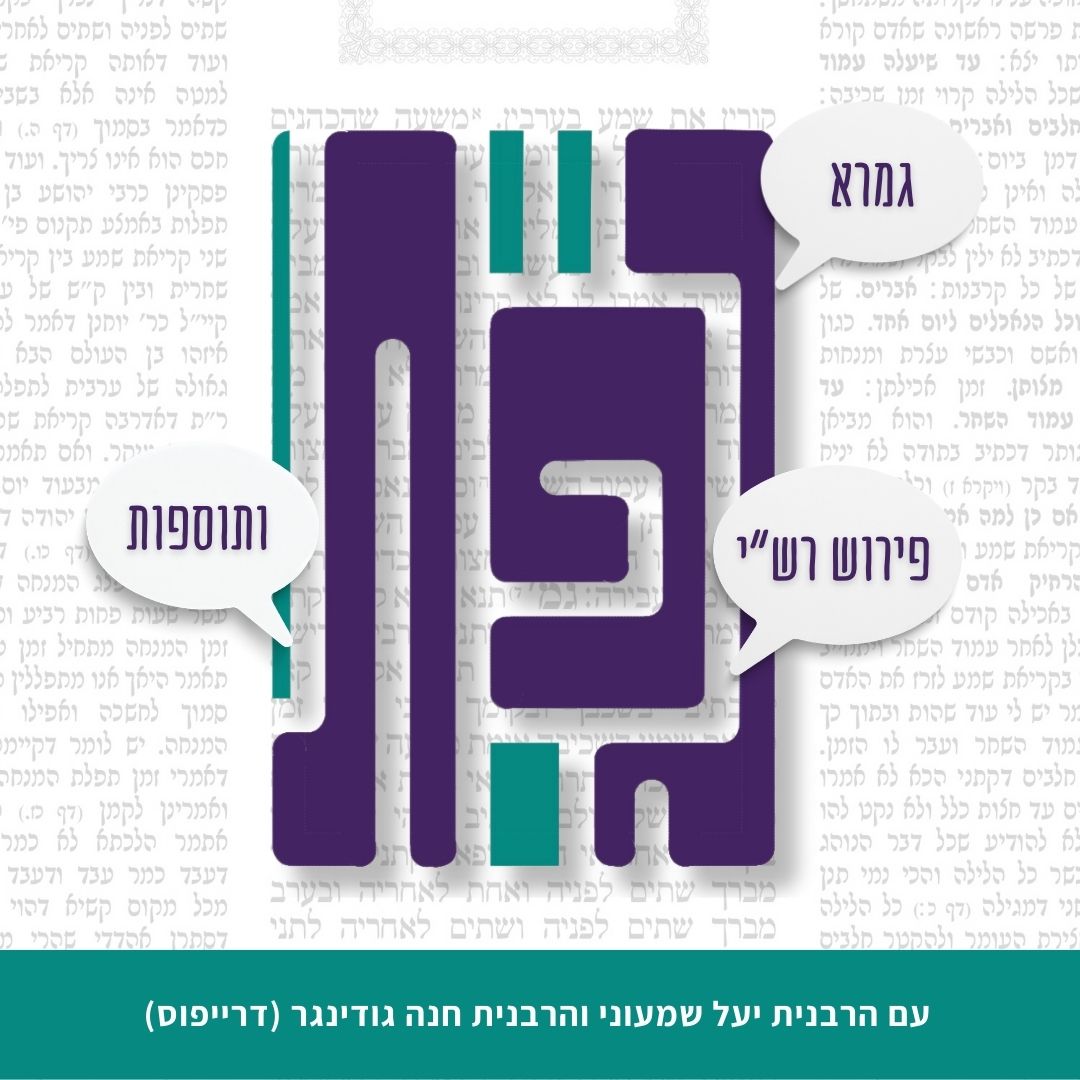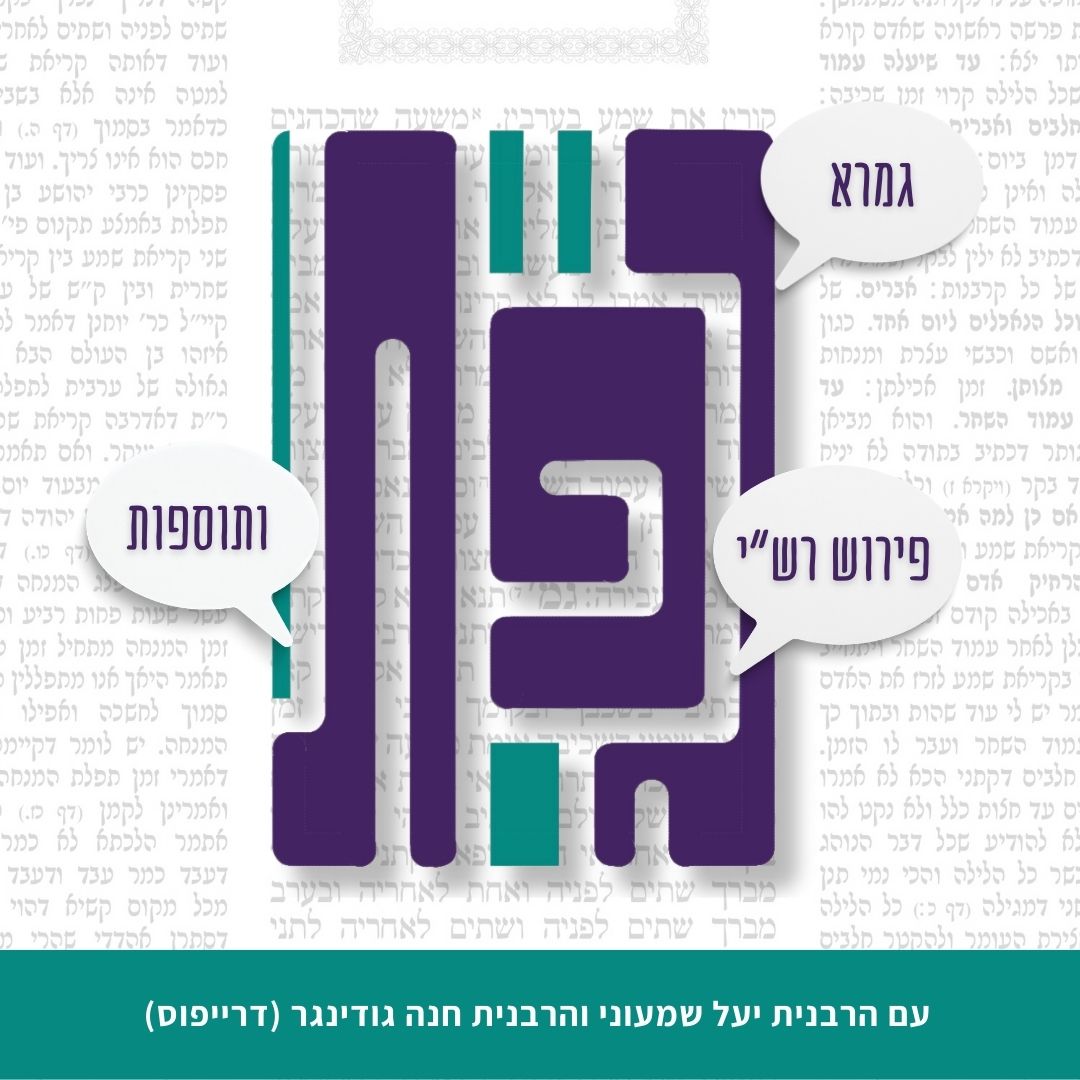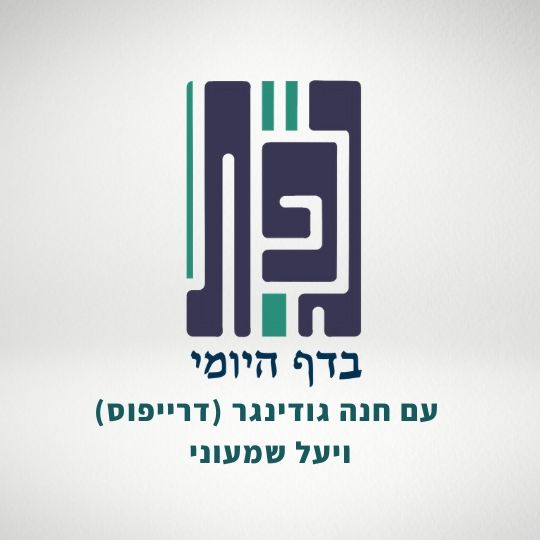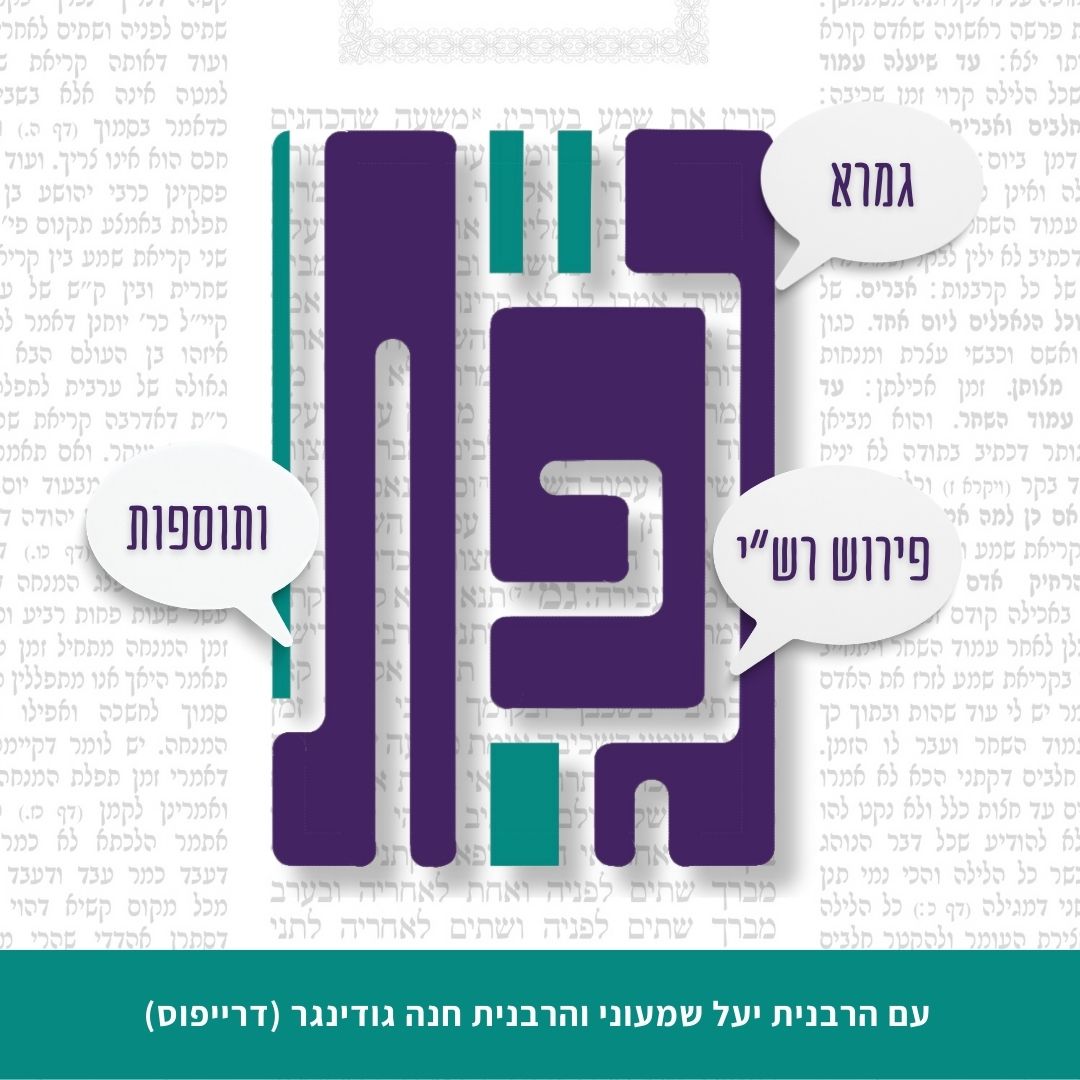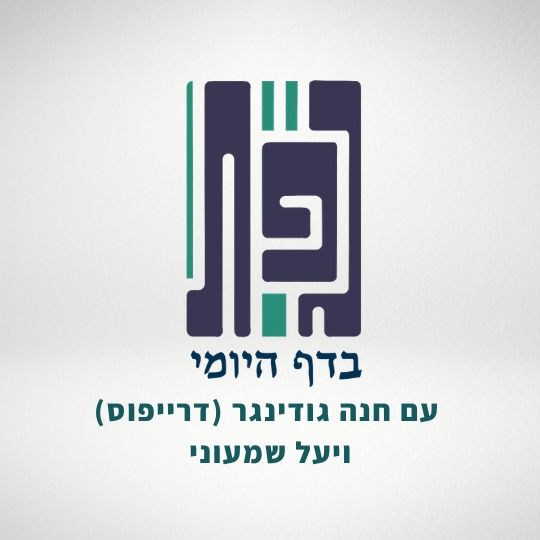פסחים צו
מַהוּ? מִדְּאִישְׁתְּרַי טוּמְאַת בָּשָׂר — אִישְׁתְּרַי נָמֵי טוּמְאַת אֵימוּרִין, אוֹ דִילְמָא: מַאי דְּאִישְׁתְּרַי — אִישְׁתְּרַי, מַאי דְּלָא אִישְׁתְּרַי — לָא אִישְׁתְּרַי.
what is the halakha? Are they liable for eating sacrificial meat while they were ritually impure? Do we say that since ritual impurity of the meat that is eaten was permitted, ritual impurity of the sacrificial portions offered on the altar was also permitted; or perhaps we say that what was permitted was permitted, and what was not permitted was not permitted?
אָמַר רָבָא: מִכְּדֵי טוּמְאַת אֵימוּרִין מֵהֵיכָא אִיתְרַבַּי — מִטּוּמְאַת בָּשָׂר, דִּכְתִיב: ״אֲשֶׁר לַה׳״, לְרַבּוֹת אֶת הָאֵימוּרִין.
Rava said: After all, from where was the halakha pertaining to eating the sacrificial portions in a state of ritual impurity included? It is derived from the halakha with regard to eating the meat in a state of ritual impurity, as it is written: “But the soul that eats of the flesh of the sacrifice of peace-offerings that pertain to the Lord, having his ritual impurity upon him, that soul shall be cut off from his people” (Leviticus 7:20); the apparently superfluous phrase “that pertain to the Lord” is there to include the sacrificial portions and establish that one is liable to receive karet for eating these portions in a state of ritual impurity.
כֹּל הֵיכָא דְּאִיתֵיהּ לְטוּמְאַת בָּשָׂר, אִיתֵיהּ לְטוּמְאַת אֵימוּרִין. כׇּל הֵיכָא דְּלֵיתֵיהּ לְטוּמְאַת בָּשָׂר, לֵיתֵיהּ לְטוּמְאַת אֵימוּרִין.
Since this is the source, there is a limitation to the halakha pertaining to sacrificial portions: Anywhere that there is liability for eating the meat in a state of ritual impurity, there is liability for eating the sacrificial portions in a state of ritual impurity; conversely, anywhere that there is no liability for eating the meat in a state of ritual impurity, such as in the case of a Paschal lamb offered in a state of ritual impurity, there is no liability for eating the sacrificial portions in a state of ritual impurity.
בָּעֵי רַבִּי זֵירָא: אֵימוּרֵי פֶּסַח מִצְרַיִם הֵיכָא אַקְטְרִינְהוּ? אֲמַר לֵיהּ אַבָּיֵי: וּמַאן לֵימָא לַן דְּלָא שְׁוִיסְקֵי עֲבוּד?
Rabbi Zeira asked: With regard to the sacrificial portions of the Paschal lamb that the Jewish people sacrificed in Egypt on the first Passover, just before they left Egypt, where did they burn them? The Torah does not say that they constructed an altar for this purpose. Abaye said to him: What place is there for such a question? Who will tell us that they did not make them roasted and eat them? The Jewish people had not yet been commanded with regard to the halakhot of sacrifices; therefore, they presumably did not distinguish between meat and forbidden fats, and they roasted and consumed the entire animal (Arukh).
וְעוֹד, הָא תְּנָא רַב יוֹסֵף: שְׁלֹשָׁה מִזְבְּחוֹת הָיוּ שָׁם: עַל הַמַּשְׁקוֹף, וְעַל שְׁתֵּי הַמְּזוּזוֹת. וְתוּ מִידֵּי אַחֲרִינָא לָא הֲוָה.
And furthermore, Rav Yosef taught that there were three parts of the door upon which the blood was sprinkled that took the place of three altars there in Egypt. The blood was applied upon the lintel and upon the two doorposts; and there was nothing else. Presumably, the Jewish people did not fulfill any mitzva not explicitly mentioned in the Torah, and since no other altar is mentioned, one can conclude that they did not offer the fats and other sacrificial portions on an altar.
מַתְנִי׳ מָה בֵּין פֶּסַח מִצְרַיִם לְפֶסַח דּוֹרוֹת? פֶּסַח מִצְרַיִם מִקָּחוֹ מִבֶּעָשׂוֹר, וְטָעוּן הַזָּאָה בַּאֲגוּדַּת אֵזוֹב, וְעַל הַמַּשְׁקוֹף וְעַל שְׁתֵּי הַמְּזוּזוֹת, וְנֶאֱכָל בְּחִפָּזוֹן, בַּלַּיְלָה אֶחָד. וּפֶסַח דּוֹרוֹת נוֹהֵג כׇּל שִׁבְעָה.
MISHNA: What are the differences between the Paschal lamb that the Jewish people offered in Egypt and the Paschal lamb offered in all later generations? The Paschal lamb the Jewish people offered in Egypt had to be taken from the tenth of the month of Nisan and required the people to sprinkle its blood with a bundle of hyssop, unlike the Paschal lamb in all later years, and its blood was also sprinkled upon the lintel and the two doorposts, and it was eaten with haste; in addition, the Paschal lamb in Egypt was only on one night, whereas the Paschal lamb throughout the generations is observed for seven days.
גְּמָ׳ מְנָא לַן? דִּכְתִיב: ״דַּבְּרוּ אֶל כׇּל עֲדַת יִשְׂרָאֵל לֵאמֹר בֶּעָשׂוֹר לַחֹדֶשׁ הַזֶּה וְיִקְחוּ״. זֶה מִקָּחוֹ מִבֶּעָשׂוֹר, וְאֵין פֶּסַח דּוֹרוֹת מִקָּחוֹ מִבֶּעָשׂוֹר.
The Gemara discusses the meaning of this difficult phrase, as obviously, the Paschal lamb is slaughtered on the fourteenth and eaten on the evening of the fifteenth. GEMARA: The Gemara asks: From where do we conclude that the requirements of the Paschal lamb sacrificed in Egypt do not apply to later generations? As it is written: “Speak to all the congregation of Israel, saying: On the tenth day of this month they shall take to them every man a lamb, according to their fathers’ houses, a lamb for a household” (Exodus 12:3); and we derive from the superfluous word “this” that this Paschal lamb offered in Egypt had to be taken from the tenth of Nisan, and the Paschal lamb of later generations is not taken from the tenth of Nisan.
אֶלָּא מֵעַתָּה: ״וְהָיָה לָכֶם לְמִשְׁמֶרֶת עַד אַרְבָּעָה עָשָׂר יוֹם לַחֹדֶשׁ הַזֶּה״, הָכִי נָמֵי — זֶה טָעוּן בִּיקּוּר אַרְבָּעָה יָמִים קוֹדֶם שְׁחִיטָה, וְאֵין אַחֵר טָעוּן בִּיקּוּר?
The Gemara expresses surprise: However, if that is so, when the verse states later in the same section: “And you shall keep it until the fourteenth day of this month” (Exodus 12:6), so too it should be inferred that this Paschal lamb in Egypt requires examination four days prior to its slaughter, and no other offering requires examination four days prior to its slaughter.
וְהָתַנְיָא, בֶּן בַּג בַּג אוֹמֵר: מִנַּיִין לְתָמִיד שֶׁטָּעוּן בִּיקּוּר אַרְבָּעָה יָמִים קוֹדֶם שְׁחִיטָה, שֶׁנֶּאֱמַר: ״תִּשְׁמְרוּ לְהַקְרִיב לִי בְּמוֹעֲדוֹ״, וּלְהַלָּן הוּא אוֹמֵר: ״וְהָיָה לָכֶם לְמִשְׁמֶרֶת עַד אַרְבָּעָה עָשָׂר״, מָה לְהַלָּן טָעוּן בִּיקּוּר אַרְבָּעָה יָמִים קוֹדֶם שְׁחִיטָה, אַף כָּאן טָעוּן בִּיקּוּר אַרְבָּעָה יָמִים קוֹדֶם שְׁחִיטָה!
But wasn’t it taught in a baraita that ben Bag Bag says: From where do we know that the daily offering requires examination four days prior to its slaughter? It is stated with regard to the daily offering: “Command the children of Israel, and say to them: My food which is presented to Me for offerings made by fire, of a sweet flavor to Me, you shall safeguard it to sacrifice to Me in its due season” (Numbers 28:2), and it states there, with regard to the Paschal lamb: “And it shall be for you as a safeguard until the fourteenth day of this month” (Exodus 12:6). Just as in the verse there, the Paschal lamb requires examination four days prior to its slaughter, so too here, the daily offering requires examination four days prior to its slaughter. There is no inference from the phrase “this month” that the requirement of examining an offering four days before is limited to the Paschal lamb sacrificed in Egypt.
שָׁאנֵי הָתָם, דִּכְתִיב: ״תִּשְׁמְרוּ״.
The Gemara answers: It is different there, with regard to the requirement to examine the daily offering four days prior to its slaughter, as it is written: “You shall safeguard it.” This halakha is derived from a verbal analogy based on the word “safeguard,” which is stated in the context of both offerings.
וּפֶסַח דּוֹרוֹת נָמֵי, הָכְתִיב: ״וְעָבַדְתָּ אֶת הָעֲבוֹדָה הַזֹּאת בַּחֹדֶשׁ הַזֶּה״, שֶׁיְּהוּ כׇּל עֲבוֹדוֹת חֹדֶשׁ זֶה — כָּזֶה.
Similarly, the Paschal lamb sacrificed in later generations also requires examination four days prior to slaughter, as it is written: “And it shall be when the Lord shall bring you into the land of the Canaanite, and the Hittite, and the Amorite, and the Hivite, and the Jebusite, which He swore to your fathers to give you, a land flowing with milk and honey, that you shall perform this service in this month” (Exodus 13:5). From here it is derived that all the services of this month for all later generations shall be like this, including examination of the animal four days prior to sacrifice. Despite the fact that the verse connects the Paschal lamb in later years to the Paschal lamb in Egypt, the requirement to take the animal on the tenth of Nisan applied only on the first Passover.
אֶלָּא הָהוּא ״הַזֶּה״ — לְמַעוֹטֵי פֶּסַח שֵׁנִי דִּכְווֹתֵיהּ.
Rather, what does that phrase: “this month,” stated with regard to the Paschal lamb sacrificed in Egypt, come to exclude? The Gemara answers that it comes to exclude the Paschal lamb of the second Pesaḥ, which is similar to it, as it is also limited to a one day celebration. The Paschal lamb of the second Pesaḥ does not require examination four days prior to its slaughter.
אֶלָּא מֵעַתָּה דִּכְתִיב: ״וְאָכְלוּ אֶת הַבָּשָׂר בַּלַּיְלָה הַזֶּה״, הָכִי נָמֵי דְּזֶה נֶאֱכָל בַּלַּיְלָה, וְאֵין אַחֵר נֶאֱכָל בַּלַּיְלָה?! אָמַר קְרָא: ״וְעָבַדְתָּ אֶת הָעֲבוֹדָה״.
Once again the Gemara questions its assertion that the phrase “this month” stated in the context of the Paschal lamb sacrificed in Egypt indicates that its halakhot are not relevant to other offerings. However, if that is so, with regard to that which is written: “And they shall eat the meat on that night” (Exodus 12:8), so too, should it be inferred that this Paschal lamb offered in Egypt was eaten at night and no other Paschal lamb offered in later generations must be eaten at night? The Gemara answers that the verse states: “You shall perform this service in this month” (Exodus 13:5), in order to teach that the halakhot of the Paschal lamb sacrificed in Egypt apply to later generations as well.
אֶלָּא ״הַזֶּה״ לְמָה לִי? לְכִדְרַבִּי אֶלְעָזָר בֶּן עֲזַרְיָה וְרַבִּי עֲקִיבָא.
The Gemara asks: Rather, if so, why do I need the word “this” stated with regard to the Paschal lamb sacrificed in Egypt if all the halakhot relevant to that offering apply to the Paschal lambs of later generations? The Gemara answers that the phrase is needed for the derivations cited by Rabbi Elazar ben Azarya and Rabbi Akiva (see Berakhot 9a) with regard to the length of time during which the Paschal lamb may be eaten.
אֶלָּא מֵעַתָּה דִּכְתִיב: ״וְכׇל עָרֵל לֹא יֹאכַל בּוֹ״, הָכִי נָמֵי דְּ״בוֹ״ אֵינוֹ אוֹכֵל, אֲבָל אוֹכֵל בְּפֶסַח דּוֹרוֹת?! אָמַר קְרָא: ״וְעָבַדְתָּ״.
The Gemara asks: However, if that is so, with regard to that which is written in the context of the Paschal lamb offered in Egypt: “And no uncircumcised person shall eat from it” (Exodus 12:48), so too, should it be inferred that the expression “from it” limits the application of the verse and teaches that “from it,” the Paschal lamb sacrificed in Egypt, he may not eat, but he may eat from the Paschal lamb sacrificed in later generations? The Gemara answers that the verse states: “You shall perform,” which teaches that the halakhot of the Paschal lamb sacrificed in Egypt apply to later generations as well.
אֶלָּא, ״בּוֹ״ לְמָה לִי? דְּ״בוֹ״ אֵינוֹ אוֹכֵל, אֲבָל הוּא אוֹכֵל בְּמַצָּה וּמָרוֹר.
The Gemara asks: But if so, why do I need the expression “from it” stated here? The Gemara answers that it teaches that from it, the Paschal lamb, he may not eat, but he eats from the matza and bitter herbs. An uncircumcised person is obligated to eat matza and bitter herbs on Passover, just like any other Jew.
אֶלָּא מֵעַתָּה: ״(וְכׇל) בֶּן נֵכָר לֹא יֹאכַל בּוֹ״, הָכִי נָמֵי דְּ״בוֹ״ אֵינוֹ אוֹכֵל, אֲבָל אוֹכֵל הוּא פֶּסַח לְדוֹרוֹת?! אָמַר קְרָא: ״וְעָבַדְתָּ״.
The Gemara continues to question: However, if that is so, when the verse states: “No stranger shall eat from it” (Exodus 12:43), so too, should it be inferred that it is only from it, the Paschal lamb sacrificed in Egypt, that he may not eat, but he may eat from the Paschal lamb sacrificed in later generations? The Gemara answers that the verse states: “You shall perform,” which teaches that the halakhot of the Paschal lamb sacrificed in Egypt apply to future generations as well. Consequently, anyone who was prohibited from eating the Paschal lamb in Egypt may not eat it in subsequent years either.
אֶלָּא, ״בּוֹ״ לְמָה לִי? ״בּוֹ״ מְשׁוּמָּדוּת פּוֹסֶלֶת, וְאֵין מְשׁוּמָּדוּת פּוֹסֶלֶת בִּתְרוּמָה.
The Gemara asks: But if so, why do I need the qualifying phrase: “From it”? The Gemara answers: It is from it, eating the Paschal lamb, that apostasy disqualifies, as the term “stranger” in this context is understood to refer to a Jew whose conduct makes him estranged from God; but apostasy does not disqualify one from eating teruma. Therefore, a priest who has become an apostate may still consume teruma.
וְאִיצְטְרִיךְ לְמִיכְתַּב ״עָרֵל״, וְאִיצְטְרִיךְ לְמִכְתַּב ״בֶּן נֵכָר״. דְּאִי כְּתַב רַחֲמָנָא ״עָרֵל״, מִשּׁוּם דִּמְאִיס, אֲבָל בֶּן נֵכָר לָא מְאִיס — אֵימָא לָא, צְרִיכָא. וְאִי אַשְׁמְעִינַן ״בֶּן נֵכָר״, מִשּׁוּם דְּאֵין לִבּוֹ לַשָּׁמַיִם, אֲבָל עָרֵל דְּלִבּוֹ לַשָּׁמַיִם — אֵימָא לָא, צְרִיכָא.
The Gemara continues: And it is necessary for the Torah to write the prohibition of an uncircumcised person, and it is necessary for the Torah to write a separate prohibition with regard to a stranger, as, if the Torah had written only about an uncircumcised person, one might have thought that only he is prohibited to eat from the Paschal lamb because the foreskin is repulsive, but a stranger who is not repulsive, say that he may eat from the Paschal lamb. Therefore, it is necessary to teach the case of a stranger. And if it would have taught us only the prohibition with regard to a stranger, one might have concluded that only he is prohibited from eating the Paschal lamb because his heart is not directed toward Heaven due to his apostasy, but with regard to an uncircumcised person, whose heart is directed toward Heaven, say that there is no prohibition for him to eat the Paschal lamb. Therefore, it is necessary to teach also the case of an uncircumcised person.
אֶלָּא מֵעַתָּה: ״תּוֹשָׁב וְשָׂכִיר לֹא יֹאכַל בּוֹ״, הָכִי נָמֵי דְּ״בוֹ״ הוּא אֵינוֹ אוֹכֵל, אֲבָל אוֹכֵל הוּא בְּפֶסַח דּוֹרוֹת?! אָמַר קְרָא: ״וְעָבַדְתָּ״. אֶלָּא ״בּוֹ״ לְמָה לִי? ״בּוֹ״ מְשׁוּמָּדוּת פּוֹסֶלֶת, וְאֵין מְשׁוּמָּדוּת פּוֹסֶלֶת בִּתְרוּמָה.
The Gemara continues to question its initial derivation: However, if that is so, when the verse pertaining to the Paschal lamb sacrificed in Egypt states: “A sojourner and a hired servant shall not eat from it” (Exodus 12:45), so too, should it be derived that from it, the Paschal lamb sacrificed in Egypt, he may not eat, but he may eat from the Paschal lamb sacrificed in later generations? The Gemara answers that the verse states: “And you shall perform,” which teaches that the halakhot of the Paschal lamb in later generations are the same as the halakhot that applied in Egypt. The Gemara asks: But if so, why do I need the qualifying term “from it”? The Gemara answers that it teaches that from it, the Paschal lamb, apostasy disqualifies one from partaking, but apostasy does not disqualify one from eating teruma.
אֶלָּא מֵעַתָּה: ״וּמַלְתָּה אֹתוֹ אָז יֹאכַל בּוֹ״, הָכִי נָמֵי דְּ״בוֹ״ אֵינוֹ אוֹכֵל, אֲבָל אוֹכֵל בְּפֶסַח דּוֹרוֹת?! אָמַר קְרָא: ״וְעָבַדְתָּ״. אֶלָּא ״בּוֹ״ לְמָה לִי? ״בּוֹ״ מִילַת זְכָרָיו וַעֲבָדָיו מְעַכֶּבֶת, וְאֵין מִילַת זְכָרָיו וַעֲבָדָיו מְעַכֶּבֶת בִּתְרוּמָה.
The Gemara continues its line of questioning: However, if that is so, when the verse said: “When you have circumcised him, then shall he eat from it” (Exodus 12:44), so too, should it be inferred that from it, the Paschal lamb sacrificed in Egypt, he may not eat unless he first circumcises his sons and slaves, but he may eat from the Paschal lamb sacrificed in later generations? The Gemara answers that the verse states: “You shall perform,” which teaches that this halakha applies to later generations as well. The Gemara asks: But if so, why do I need the qualifying term “from it”? The Gemara answers that this term teaches that from it, the Paschal lamb, the lack of circumcision of one’s male children and slaves prevents a father or master from eating until he ensures that all of the male members of his household have been circumcised, but the circumcision of one’s male children and slaves does not prevent him from eating teruma if he is himself eligible to eat it.
אֶלָּא מֵעַתָּה דִּכְתִיב: ״וְעֶצֶם לֹא יִשְׁבְּרוּ בּוֹ״, הָכִי נָמֵי דְּ״בוֹ״ אֵינוֹ שׁוֹבֵר, אֲבָל שׁוֹבֵר בְּפֶסַח דּוֹרוֹת?! אָמַר קְרָא: ״וְעָבַדְתָּ״. אֶלָּא ״בּוֹ״ לְמָה לִי? ״בּוֹ״ בְּכָשֵׁר, וְלֹא בְּפָסוּל.
The Gemara asks further: However, if that is so, with regard to that which is written: “And they shall not break a bone in it” (Numbers 9:12), so too, should it be inferred that it is prohibited to break a bone only of it, the Paschal lamb sacrificed in Egypt, but one may break a bone of a Paschal lamb sacrificed in later generations? The Gemara answers that the verse states: You shall perform, which applies the halakhot stated with regard to the Paschal lamb sacrificed in Egypt to the Paschal lambs of later generations as well. The Gemara asks: But if so, why do I need the qualifying expression “in it”? The Gemara explains that this qualification teaches that only a bone in it, a fit Paschal lamb, may not be broken, but there is no prohibition to break the bone of an unfit Paschal lamb.
אֶלָּא מֵעַתָּה דִּכְתִיב: ״אַל תֹּאכְלוּ מִמֶּנּוּ נָא״, ״מִמֶּנּוּ״ אִי אַתָּה אוֹכֵל, אֲבָל אַתָּה אוֹכֵל נָא בְּפֶסַח דּוֹרוֹת?! אָמַר קְרָא: ״וְעָבַדְתָּ״. אֶלָּא ״מִמֶּנּוּ״ לְמָה לִי? לְכִדְרַבָּה אָמַר רַבִּי יִצְחָק.
The Gemara asks further: However, if that is so, from that which is written: “Do not eat of it raw, nor boiled in water, but roasted in fire” (Exodus 12:9), should it be inferred that it is only of it, the Paschal lamb sacrificed in Egypt, that you may not eat raw, but you may eat raw meat from the Paschal lamb of later generations? The Gemara answers that the verse states: “You shall perform,” which teaches that the prohibition applies to later generations as well. The Gemara asks: But if so, why do I need the qualifying expression “in it”? The Gemara answers that it is necessary for that which Rabba said that Rabbi Yitzḥak said, that this verse serves as the basis of a verbal analogy which teaches that an uncircumcised man may not eat tithes.
וְנֶאֱכָל בְּחִפָּזוֹן וְכוּ׳. מְנָא לַן? דְּאָמַר קְרָא: ״וַאֲכַלְתֶּם אוֹתוֹ בְּחִפָּזוֹן״. ״אוֹתוֹ״ נֶאֱכָל בְּחִפָּזוֹן, וְאֵין אַחֵר נֶאֱכָל בְּחִפָּזוֹן.
The Gemara returns to discuss the mishna, which stated that the Paschal lamb sacrificed in Egypt was eaten with haste but that Paschal lambs sacrificed in later years were not. From where do we derive this halakha? The Gemara answers that it is as the verse states: “You shall eat it in haste; it is the Lord’s Paschal lamb” (Exodus 12:11). The word “it” indicates a detail and teaches that “it” is eaten with haste, and no other Paschal lamb is eaten with haste.
וּפֶסַח דּוֹרוֹת נוֹהֵג כׇּל שִׁבְעָה וְכוּ׳. אַמַּאי קָאֵי? אִי לֵימָא אַפֶּסַח, פֶּסַח כׇּל שִׁבְעָה מִי אִיכָּא!
The mishna stated that the Paschal lamb of later generations applies all seven days. The Gemara asks: On what does this stand? If we say that it refers to the Paschal lamb itself, is there a Paschal lamb all seven days? It is offered only on the fourteenth of Nisan.
אֶלָּא אַחָמֵץ. מִכְּלָל דְּפֶסַח מִצְרַיִם לַיְלָה אֶחָד וְתוּ לָא? וְהָתַנְיָא, רַבִּי יוֹסֵי הַגְּלִילִי אוֹמֵר: מִנַּיִן לְפֶסַח מִצְרַיִם שֶׁאֵין חִימּוּצוֹ נוֹהֵג אֶלָּא יוֹם אֶחָד — תַּלְמוּד לוֹמַר: ״לֹא יֵאָכֵל חָמֵץ״, וּסְמִיךְ לֵיהּ: ״הַיּוֹם אַתֶּם יוֹצְאִים״.
Rather, it refers to leavened bread, which is prohibited all seven days of Passover in the generations following the Exodus. The Gemara asks: Does this prove by inference that during the Passover of Egypt, leaven was prohibited for only one night and not more? But wasn’t it taught in a baraita that Rabbi Yosei HaGelili says: From where is it derived with regard to the Passover of Egypt that its prohibition of leavened bread applied for only one day? The verse states: “No leavened bread shall be eaten” (Exodus 13:3), and juxtaposed to it the verse states: “This day you go forth” (Exodus 13:4), to teach that the prohibition of leaven applied in Egypt for only one day. In any event, the prohibition applied for an entire night and day, and not just one night.
אֶלָּא הָכִי קָאָמַר: לַיְלָה אֶחָד, וְהוּא הַדִּין לְפֶסַח דּוֹרוֹת. וְחִימּוּצוֹ כׇּל הַיּוֹם, וּפֶסַח דּוֹרוֹת נוֹהֵג כׇּל שִׁבְעָה.
Rather, this question must be answered by saying that this is what it said in the mishna: The Paschal lamb was eaten in Egypt on one night, and the same is true of the Paschal lamb of later generations; and its prohibition against leavened bread applied the entire day, and on Passover in later generations it applies to all seven days of the Festival.
מַתְנִי׳ אָמַר רַבִּי יְהוֹשֻׁעַ: שָׁמַעְתִּי שֶׁתְּמוּרַת פֶּסַח קְרֵיבָה, וּתְמוּרַת פֶּסַח אֵינָהּ קְרֵיבָה, וְאֵין לִי לְפָרֵשׁ.
MISHNA: Rabbi Yehoshua said: I heard two rulings from my teachers: One ruling was that the substitute of a Paschal lamb is sacrificed as a peace-offering after Passover, and another ruling was that the substitute of a Paschal lamb is not sacrificed as a peace-offering after Passover; and I cannot explain these two rulings, as I do not remember the circumstances to which each ruling applies.
אָמַר רַבִּי עֲקִיבָא, אֲנִי אֲפָרֵשׁ: הַפֶּסַח שֶׁנִּמְצָא קוֹדֶם שְׁחִיטַת הַפֶּסַח — יִרְעֶה עַד שֶׁיִּסְתָּאֵב, וְיִמָּכֵר, וְיָבִיא בְּדָמָיו שְׁלָמִים. וְכֵן תְּמוּרָתוֹ.
Rabbi Akiva said: I will explain: With regard to a lamb that is separated as a Paschal lamb and is then lost, leading the owner to separate another animal as its replacement, and is later found before the slaughter of the replacement Paschal lamb, it is left to graze until it becomes unfit [yista’ev] and disqualified for use as a sacrifice. It is then sold and becomes unconsecrated, and the owner must bring a peace-offering with its proceeds. And so too, the same is true with regard to its substitute: If one separates another lamb as a substitute for this replacement, the sanctity of the original lamb extends to the substitute as well. In the case outlined above, the substitute would graze, just like the replacement, until it developed a blemish and would then be sold. This is the circumstance in which the substitute of a Paschal lamb is not sacrificed.
אַחַר שְׁחִיטַת הַפֶּסַח — קָרֵב שְׁלָמִים. וְכֵן תְּמוּרָתוֹ.
On the other hand, if the lost lamb is found after the slaughter of the replacement Paschal lamb, it itself is sacrificed as a peace-offering, and so too, its substitute is sacrificed, which explains the ruling that the substitute of a Paschal lamb is sacrificed as a peace-offering.
גְּמָ׳ וְלֵימָא: פֶּסַח קָרֵב וּפֶסַח אֵינוֹ קָרֵב. הָא קָא מַשְׁמַע לַן דְּאִיכָּא תְּמוּרַת הַפֶּסַח דְּלָא קָרְבָה.
GEMARA: The Gemara questions the explanation of Rabbi Akiva: If so, let the mishna say these halakhot more simply, as follows: The Paschal lamb itself is sacrificed and the Paschal lamb is not sacrificed. According to Rabbi Akiva’s explanation, the same rule applies to both the lamb and its substitute. What additional point is Rabbi Yehoshua making by speaking about the substitute? The Gemara answers: This comes to teach us through this formulation that there is a case of a substitute Paschal lamb that is not sacrificed. One might have thought that a substitute Paschal lamb is always treated as a peace-offering, even when it was substituted before the time of the slaughter; therefore, the mishna states that there is an instance in which it cannot be sacrificed because it is a substitute for a Paschal lamb that itself cannot be sacrificed.
אִיתְּמַר, רַבָּה אָמַר: קוֹדֶם שְׁחִיטָה וּלְאַחַר שְׁחִיטָה שָׁנִינוּ. רַבִּי זֵירָא אָמַר: קוֹדֶם חֲצוֹת וּלְאַחַר חֲצוֹת שָׁנִינוּ.
It was stated that there was a dispute between amora’im about the proper text of the mishna. Rabba said: We learned the opinion of Rabbi Akiva in the mishna as referring to the distinction of whether the lamb is found before the slaughter of the replacement lamb or after the slaughter of the replacement lamb. Rabbi Zeira said: We learned that it depends upon whether it is found before midday or after midday. Midday is the time that determines the status of an animal as a Paschal lamb; therefore, if the lamb is found after midday, even if it is found before the slaughter of the replacement Paschal lamb, its identity as a Paschal lamb is not firmly established and it may be sacrificed as a peace-offering.
וּלְרַבִּי זֵירָא, הָא קָתָנֵי קוֹדֶם שְׁחִיטַת הַפֶּסַח? אֵימָא: קוֹדֶם זְמַן שְׁחִיטַת הַפֶּסַח.
The Gemara asks: And according to Rabbi Zeira, isn’t the mishna teaching explicitly that it depends upon whether the lamb is found before the slaughter of the replacement Paschal lamb? How can he disagree with the mishna? The Gemara answers: Say that according to Rabbi Zeira, the mishna must be interpreted as referring not to the act of the slaughter itself but to a lamb that is found before the earliest time for the slaughter of the Paschal lamb, which is midday.
כְּתַנָּאֵי. הַפֶּסַח שֶׁנִּמְצָא קוֹדֶם שְׁחִיטָה — יִרְעֶה, לְאַחַר שְׁחִיטָה — יִקְרַב. רַבִּי אֱלִיעֶזֶר אוֹמֵר: קוֹדֶם חֲצוֹת — יִרְעֶה, לְאַחַר חֲצוֹת — יִקְרַב.
The Gemara notes that this dispute among the amora’im is like the following dispute between tanna’im in a mishna: The Paschal lamb that is found before the slaughter of its substitute shall be left to graze until it becomes unfit; it is then sold, and the proceeds are used to purchase an animal that will be sacrificed as a peace-offering. If it is found after the slaughter, it itself is to be sacrificed as a peace-offering. This is parallel to the explanation of Rabba. Rabbi Eliezer says that if it is found before midday it shall be left to graze, but if it is found after midday it is to be sacrificed as a peace-offering, which is parallel to the explanation of Rabbi Zeira.
אַחַר שְׁחִיטַת הַפֶּסַח יָבִיא שְׁלָמִים וְכוּ׳. אָמַר רָבָא: לֹא שָׁנוּ אֶלָּא שֶׁנִּמְצָא אַחַר שְׁחִיטָה וְהֵמִיר בּוֹ אַחַר שְׁחִיטָה. אֲבָל נִמְצָא קוֹדֶם שְׁחִיטָה וְהֵמִיר בּוֹ אַחַר שְׁחִיטָה — תְּמוּרָתוֹ מִכֹּחַ קְדוּשָּׁה דְּחוּיָה קָא אָתָא, וְלָא קָרְבָה.
It was stated in the mishna that if the original lamb is found after the slaughter of the replacement Paschal lamb, one should bring the original lamb as a peace-offering, and the same applies to its substitute. Rava said: They taught that the substitute may be sacrificed as a peace-offering only when the original lamb was found after the slaughter of the replacement lamb and one performed the substitution after the slaughter, when the original lamb itself was fit to be offered as a peace-offering. But if the original lamb was found before the slaughter, even if one performed the substitution after the slaughter of the replacement lamb, the substitute lamb may not be sacrificed as an offering. The reason for this is that the original lamb may no longer be sacrificed as an offering and must be left to graze until it develops a blemish. Therefore, the sanctity of its substitute comes on the strength of deferred sanctity, and the substitute may not be sacrificed.
אֵיתִיבֵיהּ אַבָּיֵי: ״אִם כֶּשֶׂב״, מָה תַּלְמוּד לוֹמַר ״אִם כֶּשֶׂב״? לְרַבּוֹת תְּמוּרַת הַפֶּסַח אַחַר הַפֶּסַח שֶׁקְּרֵבָה שְׁלָמִים.
Abaye raised an objection to Rava based on a baraita: With regard to the verse: “If he brings a lamb for his offering” (Leviticus 3:7), what is the meaning when the verse states: “If he brings a lamb”? What is added by the word “if”? It comes to include the substitute of a Paschal lamb after the slaughter of the replacement Paschal lamb and teaches that it is offered as a peace-offering.
הֵיכִי דָּמֵי? אִילֵּימָא שֶׁנִּמְצָא אַחַר שְׁחִיטָה וְהֵמִיר בּוֹ אַחַר שְׁחִיטָה — פְּשִׁיטָא! לְמָה לִי קְרָא? אֶלָּא לָאו, שֶׁנִּמְצָא קוֹדֶם שְׁחִיטָה וְהֵמִיר בּוֹ אַחַר שְׁחִיטָה!
Abaye clarifies the meaning of this baraita: What are the circumstances of the case under discussion? If we say it is a case in which the lamb was found after the slaughter and one performed the substitution after the slaughter, it is obvious, as any Paschal lamb found after the slaughter of its replacement becomes a peace-offering; in that case, why do I need a verse to teach this halakha? Rather, is it not addressing a case in which the original lamb was found before the slaughter of its replacement and one performed the substitution after the slaughter of the replacement, and nonetheless the substitute lamb may be offered as a peace-offering, in opposition to Rava’s ruling?
לָא, לְעוֹלָם שֶׁנִּמְצָא אַחַר שְׁחִיטָה וְהֵמִיר בּוֹ אַחַר שְׁחִיטָה, וּקְרָא אַסְמַכְתָּא בְּעָלְמָא.
The Gemara responds: No; actually it can be explained as referring to a case in which the original lamb was found after the slaughter of the replacement, and one performed the substitution after the slaughter. It is indeed obvious and no verse is necessary to teach this halakha; the verse cited is not the source for this ruling but is a mere support.
אֶלָּא קְרָא לְמַאי אֲתָא? כִּדְתַנְיָא: ״כֶּשֶׂב״ לְרַבּוֹת אֶת הַפֶּסַח לְאַלְיָה.
The Gemara asks: But then for what purpose does this verse come? The Gemara answers: As it was taught in a baraita: The word “lamb” comes to include the Paschal lamb in the requirement that the fat tail be offered on the altar, as this halakha is not explicitly mentioned in the verses that relate to the Paschal lamb.
כְּשֶׁהוּא אוֹמֵר ״אִם כֶּשֶׂב״, לְרַבּוֹת פֶּסַח שֶׁעָבְרָה שְׁנָתוֹ, וּשְׁלָמִים הַבָּאִין מֵחֲמַת פֶּסַח לְכׇל מִצְוַת שְׁלָמִים, שֶׁטָּעוּן סְמִיכָה וּנְסָכִים וּתְנוּפַת חָזֶה וָשׁוֹק.
The baraita continues: When it says: “If he brings a lamb,” which alludes to additional types of offerings it comes to include a lamb consecrated as a Paschal lamb whose first year has passed and is therefore too old to be offered as a Paschal lamb, or peace-offerings that come due to a Paschal lamb, both those separated as a substitute for a Paschal lamb and those that were actually consecrated as a Paschal lamb but the owner fulfilled his obligation with a different Paschal lamb, in all the mitzvot of peace-offerings. These offerings are no longer considered Paschal lambs and are treated as peace-offerings in every way. Therefore, they require leaning and libations and the waving of the breast and thigh.
וּכְשֶׁהוּא אוֹמֵר ״וְאִם עֵז״ — הִפְסִיק הָעִנְיָן, לִימֵּד עַל הָעֵז שֶׁאֵין טְעוּנָה אַלְיָה.
The baraita continues: And when it says: “And if his offering is a she-goat” (Leviticus 3:12), it interrupted the previous matter and taught that the offering of a she-goat does not require the fat tail to be burned on the altar.
אִיכָּא דְּמַתְנֵי לַהּ אַרֵישָׁא: הַפֶּסַח שֶׁנִּמְצָא קוֹדֶם שְׁחִיטַת הַפֶּסַח — יִרְעֶה עַד שֶׁיִּסְתָּאֵב, וְיִמָּכֵר, וְיָבִיא בְּדָמָיו שְׁלָמִים. וְכֵן תְּמוּרָתוֹ.
The Gemara has concluded one version of the dispute between Rava and Abaye. However, some teach this dispute with regard to the first clause of the mishna, which states that a Paschal lamb which is first lost and then found before the slaughter of the replacement Paschal lamb must be left to graze until it becomes unfit, and it is then sold, and one must bring a peace-offering with its proceeds; and likewise, the same is the case with regard to its substitute.
אָמַר רָבָא: לֹא שָׁנוּ אֶלָּא שֶׁנִּמְצָא קוֹדֶם שְׁחִיטָה וְהֵמִיר בּוֹ קוֹדֶם שְׁחִיטָה, אֲבָל נִמְצָא קוֹדֶם שְׁחִיטָה וְהֵמִיר בּוֹ אַחַר שְׁחִיטָה — תְּמוּרָתוֹ קְרֵיבָה שְׁלָמִים. מַאי טַעְמָא — כִּי קָבְעָה שְׁחִיטָה מִידֵּי דַּחֲזֵי לֵיהּ. מִידֵּי דְּלָא חֲזֵי לֵיהּ — לָא קָבְעָה.
With regard to this halakha, Rava said: They taught this halakha only in a case where the original lamb was found before the slaughter and one performed the substitution before the slaughter; but if the original lamb was found before the slaughter and one performed the substitution after the slaughter of the replacement lamb, its substitute is offered as a peace-offering. What is the reason for his opinion? The slaughter of the replacement establishes a halakhic reality only with regard to something which is fit for it; in other words, it is only with regard to a Paschal lamb itself that it matters whether it was found before or after the slaughter. However, with regard to something that was not fit for it, such as the substitute, which cannot be offered as a Paschal lamb in any event, the slaughter does not establish its status. Therefore, it can later be sacrificed as a peace-offering.
אֵיתִיבֵיהּ אַבָּיֵי: ״אִם כֶּשֶׂב״, מָה תַּלְמוּד לוֹמַר? לְרַבּוֹת תְּמוּרַת הַפֶּסַח אַחַר הַפֶּסַח שֶׁקְּרֵיבָה שְׁלָמִים.
Abaye raised an objection to Rava based on the same baraita quoted previously: What is the meaning when the verse states: “If he brings a lamb”? It comes to include the substitute of a Paschal lamb after Passover, which is offered as a peace-offering.

